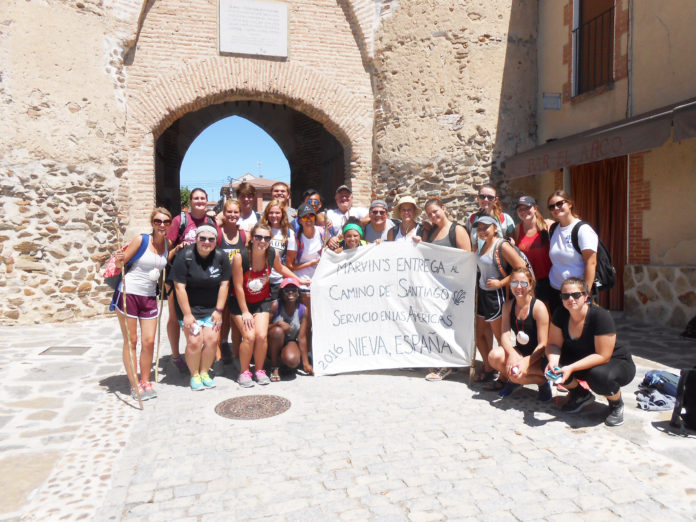
Founded in 2007 by the donation of Steven L. Trulaske ‘79, Servicio en las Americas has seen students build homes in Ecuador, refurbish churches in Spain, and hike the Incan trail to the top of Machu Pichu in Peru.
Spanish Professor and former director of the program, Aaron Dziubinskyj described the program as “living language.” While The Steve L. Trulaske International Scholarship Fund will continue to support the program for years to come, the categorization and compensation for faculty may change in the coming years.
Servicio has been committed to immersing students into the language and culture of the country they choose to visit and help through their service. The five-week intensive program has become a staple of experiential learning at DePauw.
“There is conversation of making sure that the compensation for faculty in line with other faculty led off campus style courses. Whether or not that results in a reduction of the faculty stipend, I don’t know yet,” said Mandy Brookins Blinn, assistant dean of experiential learning and director of off-campus programs.
With courses offered for academic credit, faculty leaders are entitled to 6.15 percent of their salary towards a future stipend or they may accept $2,500 in cash instead. The University payroll office is responsible for this compensation. Currently, Servicio is not offered for class credit therefore faculty compensation has not been determined like other off campus courses and has not been funded by the University payroll office.
“I think there needs to be an incentive to go above and beyond. We have a lot of personal and professional responsibility with the program. To not have that backed by something substantial would hurt motivation for leaders in the future,” Dziubinskyj said.
While the academic experience and educational growth of the program are comparable to others, there is no real incentive. The program is free, but students collect no credential and receive no grade.
Although the program is not offered for credit, students excel in placement tests after the program. “Students generally improve by one semester of language. They place well before the program but excel upon returning,” Brookins Blinn said. “If you compare Servicio to the French immersion and Italian immersion programs at DePauw, those courses offer at least .5 to one credit and students experience similar progress.”
In the past and going forward for this year’s program, the entirety of the program will be funded by Steven L. Trulaske’s donation. This includes on-campus housing, meals, student travel and faculty compensation. For the entirety of Servicio’s ten year history, the program has prided itself on being free for students. If the Servicio program were to implement a grading scale it may affect the kind of students that Servicio targets.
“Right now other programs charge tuition. I think that the whole idea was to give students who wouldn’t have this opportunity the chance,” Brooks Blinn said. “If we were to go down a credit route we would have to be careful about how we do that. I don’t want to unintentionally disadvantage a students who are perfect for the program, but can’t afford the tuition.”
Brooks Blinn emphasized the importance of the program in creating leaders. “The outcomes are amazing. We have Fulbright Winners, National Science Foundation winners, and people working in diplomacy now who graduated from this program,” Blinn said. “I really want to make sure the program is sustainable for the future.”
Not only does the program create leaders at DePauw and prepare potential first-year students for the academic rigor of DePauw, it has been a key to the success of the admission department in the past. “In some cases, it has tipped students interest in coming to DePauw,” Dziubinskji said. Servicio has served as a yield tool for accepted students. Due to the program’s free cost and international travel the appeal of the program has been steady during its ten-year history.
The 2017 Servicio en las Américas program will travel to Costa Rica after spending 2.5 weeks on DePauw's campus. Again, all costs of the program (airfare, food, lodging, etc.) are at no cost to the student. The program begins Sunday, June 25 and ends Sunday, July 30, and President McCoy and his family will be accompanying students on the program for a portion of the trip.
“We’re going to go save some turtles and I think it’s a great opportunity for my family to spend time directly with DePauw students and show how much the administration supports programs like Servicio,” said President McCoy during his D3TV State of the Union Q&A. “International travel can be life changing and this is an incredible opportunity.”
